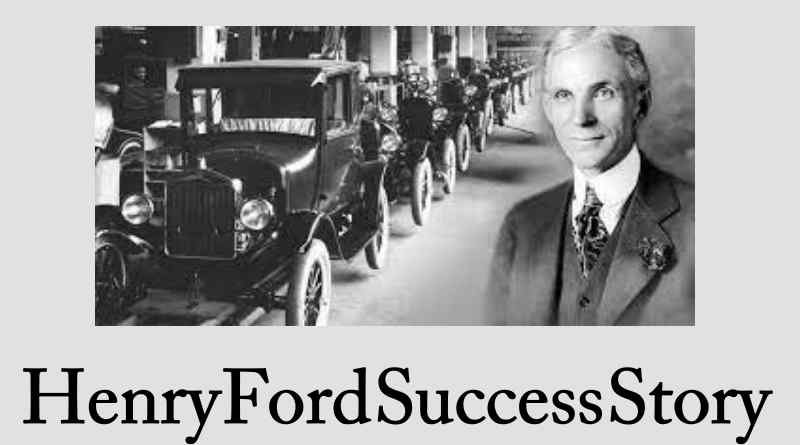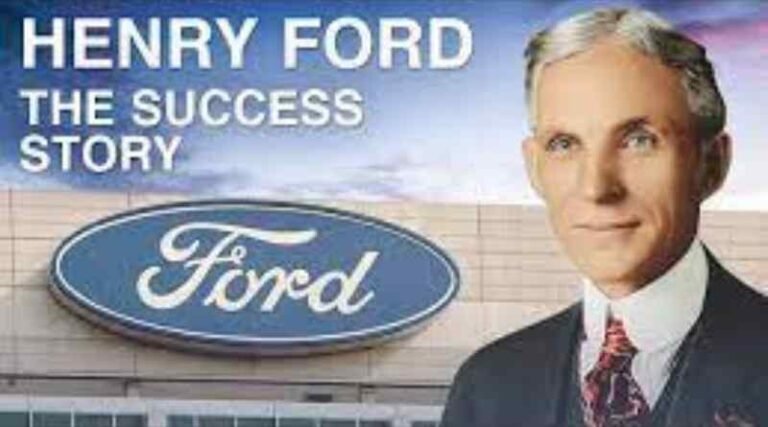Henry Ford, an industrialist, innovator, and founder of the Ford Motor Company, left an indelible mark on the automotive industry and modern manufacturing. His journey from a modest background to becoming one of the most influential figures of the 20th century is a testament to his vision, perseverance, and ingenuity.
Early Life and Background
Henry Ford was born on July 30, 1863, on a farm near Dearborn, Michigan. Growing up on a farm, he developed a keen interest in machinery and engineering from a young age. Despite lacking a formal education, Ford’s natural curiosity and knack for tinkering with machines propelled him forward.
The Birth of an Iconic Brand

In 1903, Henry Ford founded the Ford Motor Company, which would go on to revolutionize the automotive industry. With the introduction of the Model T in 1908, Ford embarked on a mission to make automobiles affordable and accessible to the masses. By implementing assembly line production techniques and streamlining manufacturing processes, Ford achieved unprecedented efficiencies, driving down production costs and making cars more affordable for the average American.
Impact on Manufacturing
Ford’s implementation of the assembly line not only transformed the automobile industry but also had a profound impact on manufacturing as a whole. The concept of mass production revolutionized the way goods were produced, making them more affordable and readily available to consumers worldwide. Ford’s innovative approach to production set a new standard for efficiency and productivity, paving the way for modern manufacturing practices.
The $5 Workday
In 1914, Henry Ford made waves by introducing the $5 workday for his employees, more than doubling the prevailing wage at the time. This bold move was not just an act of generosity but a strategic decision aimed at reducing employee turnover, increasing productivity, and fostering loyalty among workers. Ford recognized the importance of investing in his workforce and believed that well-paid employees would be more motivated and productive, leading to higher quality products and increased profits.
minecraft (2009) game icons banners
001-$wag$-sfap49glta4b7hwyl5fsq-3802622129
Legacy and Impact
Henry Ford’s legacy extends far beyond the automotive industry. His innovative spirit, visionary leadership, and commitment to social welfare continue to inspire generations of entrepreneurs, engineers, and business leaders. Ford’s contributions to manufacturing, labor practices, and corporate philanthropy have left an indelible mark on the world, shaping the way we live, work, and interact with technology. Henry Ford, the iconic American industrialist and founder of the Ford Motor Company, had a significant net worth during his lifetime. At the peak of his success, his net worth was estimated to be in the billions adjusted for inflation. He revolutionized the automobile industry with the introduction of assembly line production techniques and the Model T, making cars affordable for the average person.
Ford was born on July 30, 1863, and he passed away on April 7, 1947. At the time of his death, he was 83 years old.
Read Also: Andrew Carnegie Success Story

